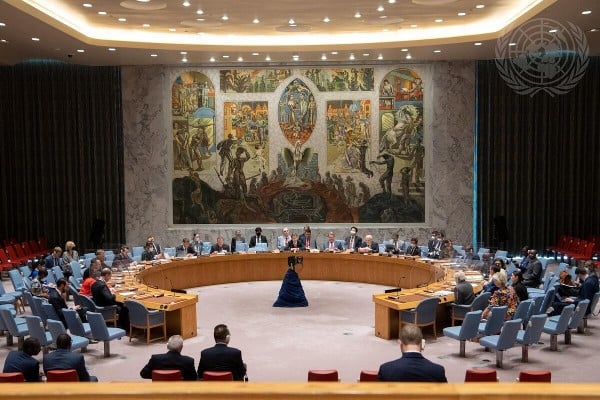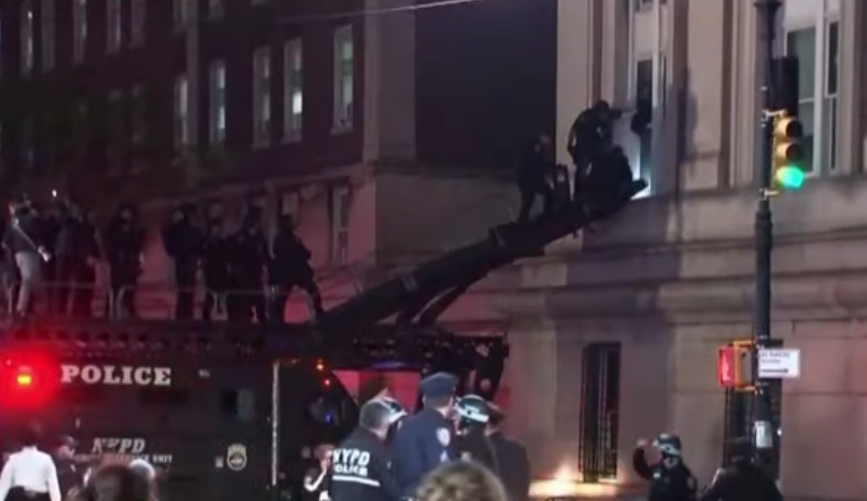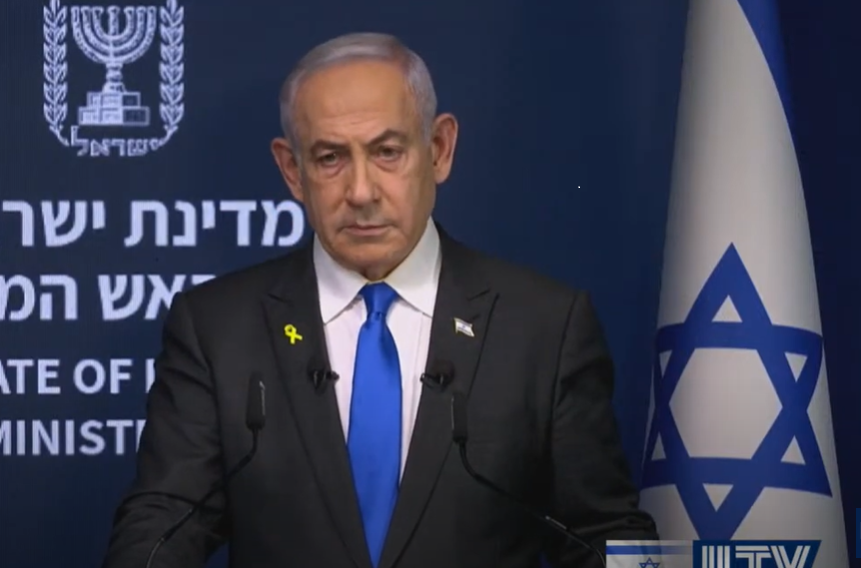ARTICLE AD BOX

Meeting of the UN Security Council, June 14, 2022. (UN Photo/Eskinder Debebe)
(UN Photo/Eskinder Debebe)
US vetoes UN security council resolution on Gaza ceasefire, says proposal must call for release of hostages
‘As we stated many times before, we just can’t support an unconditional ceasefire that does not call for the immediate release of hostages,’ a senior US official said.
By The Algemeiner and Reuters
The United States on Wednesday vetoed a UN Security Council resolution for a ceasefire in Israel’s war in Gaza, accusing council members of cynically rejecting attempts at reaching a compromise.
The 15-member council voted on a resolution put forward by its 10 non-permanent members in a meeting that called for an “immediate, unconditional, and permanent ceasefire” and separately demand the release of hostages.
Only the US voted against, using its veto as a permanent council member to block the resolution.
A senior US official, who briefed reporters on condition of anonymity ahead of the vote, said the US would only support a resolution that explicitly calls for the immediate release of hostages as part of a ceasefire.
“As we stated many times before, we just can’t support an unconditional ceasefire that does not call for the immediate release of hostages,” the official said.
Hamas-led Palestinian terrorists began the ongoing war with their invasion of southern Israel last Oct. 7.
During the onslaught, the terrorists killed 1,200 people, wounded thousands, and kidnapped over 250 hostages, taking them to Hamas-ruled Gaza.
Israel responded with a military campaign aimed at freeing the hostages and dismantling Hamas’s military and governing capabilities in the neighboring Palestinian enclave.
Ahead of Wednesday’s vote, Britain put forward new language that the US would have supported as a compromise, but that was rejected, the US official said.
Some of the council’s 10 elected members (E10) were more interested in bringing about a US veto than compromising on the resolution, the official said, accusing Russia and China of encouraging those members.
“China kept demanding ‘stronger language’ and Russia appeared to be pulling strings with various [elected] 10 members,” the official said.
“This really does undercut the narrative that this was an organic reflection of the E10 and there’s some sense that some E10 members regret that those responsible for the drafting allowed the process to be manipulated for what we consider to be cynical purposes.”

 2 months ago
101
2 months ago
101









 English (US) ·
English (US) ·